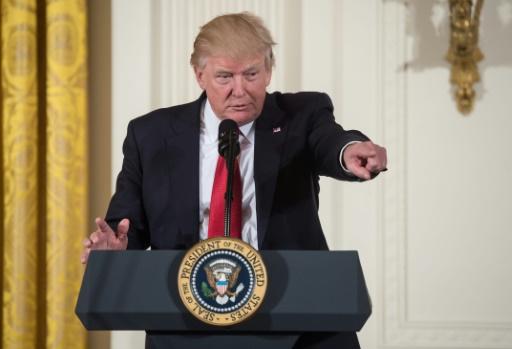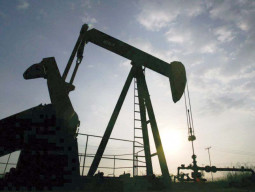
Global opinions are also somewhat consistent. His political policies aside, even his economic policies are bashed as counter to both American and global growth by some of the leading figures in economic profession.
Quite recently, Keynesian economist Paul Krugman forecasted doom for Trumponomics as Donald Trump’s economic policies have come to be known as.
Where is the economy stuck?
Following this trend, in Pakistan, not many have attempted to decipher Trumponomics to highlight lessons which it may hold for our country. But hidden behind this facade lays some valuable insights in Trumponomics for Pakistani economy.
Pakistan’s case
For Pakistan, particularly, tax policy of Trumponomics in the context of private businesses is the one that warrants serious attention. As of now, these tax reforms are tabled with the American Congress.
Corporate tax rate in the United States of America (USA) is 35% which is considered to be one of the highest in the world. Trump’s nominee to lead the Council of Economic Adviser, economist Kevin A. Hassett, has termed it so high that a cut in it may increase revenue. This, however, is no voodoo economics as termed by some leading Keynesian economists. The idea is part of standard economic theory and is known as Laffer Curve.
Before stating Pakistan’s corporate tax rate, let’s get one fact straight. United States is an economy where an average American earns about $50,000 per year. Pakistan’s average income is not even 5% of the American average income.
Intuitively, one may be tempted to guess that Pakistan’s corporate tax rate would be far lower than that.
Well? It’s just a shy under that prevailing in the United States. Corporate tax rate in Pakistan is 31%. And yes it too is one of the highest in the world. The average corporate tax rate for South Asian countries is 24%.
Pakistan may also increase its public revenues with a cut in this rate. The Trump administration has proposed to reduce its corporate tax rate from 35% to 15%. As per one study by PRIME Institute, corporate tax rate in Pakistan should be reduced to 10%.
The argument for this reduction is even clearer in the context of low labor productivity in Pakistani businesses. Productivity is largely contingent on capital. High corporate tax rate in Pakistan is giving rise to corporate inversion which is a practice of relocating to a low-tax nation.
In 2016, 40% of Pakistani companies that provided internet services moved their operations to the United Arab Emirates (UAE). They reported 8% additional taxes on revenues levied by the government as a reason behind this move. Labour productivity in Pakistan has taken a dip as capital is forced to move to such low tax nations. It must be confessed here that this factor is among many other responsible for depressing labor productivity in Pakistan.
Strong US jobs data keeps stock markets humming
Reduction in corporate tax rate is not all that Trumponomics has to offer to tax policymakers of Pakistan.
Corporate balance sheets
Tax policy in Pakistan is distorting the balance sheet of companies. The current withholding tax regime has turned companies more debt-laden. Withholding tax rate on dividend payments to equity holders in Pakistan is greater than that on interest payment to bond holders.
The result? Investors are more willing to hold bonds of corporations than equity holders. This not only dents the expansion of capital market in Pakistan but also reduces profit margins as debt payments go up. Here too, Pakistan can take a leaf from Trump’s tax reform book.
Interestingly, this asymmetry is also present in United States but it exits in a different form. Nonetheless, it too, promotes debt over equity. Trumponomics is set to remove this distortion within the American tax system. It aims to do that based on the premise that a company’s tax payment should be based on its cash flow which is simply the net amount left after wage payment and investment spending are taken out of the total revenue. The proportion of dividend payments and interest payments it makes would be irrelevant.
Declining exports
Major among Trump’s presidential campaign has been a focus on arresting America’s ever deteriorating trade deficit. In his tax policy too, Trump administration is tackling this issue. In America, profits from goods produced within the United States are taxed irrelevant of where they end up being. This means that exporters are taxed too under this origin-based taxation.
The tax reform being proposed by Trump administration is attempting to address this by taxing every good consumed in the United States irrespective of where they have come from. This is called destination-based taxation. This way imports would be taxed and exports would be exempted.
17 predictions for Pakistan’s economy in 2017
It has become a routine for Pakistani exporters to complain about taxation issues. Adopting a destination-based system can be one option to appease their incessant complains.
Apart from these measures, Pakistani tax policymakers should do away with their obsession of wresting everything away from the economy and into their coffers.
The writer is a Research Associate at Policy Research Institute of Market Economy
Published in The Express Tribune, May 1st, 2017.
Like Business on Facebook, follow @TribuneBiz on Twitter to stay informed and join in the conversation.



1731655243-0/BeFunky-collage-(61)1731655243-0-165x106.webp)













COMMENTS (6)
Comments are moderated and generally will be posted if they are on-topic and not abusive.
For more information, please see our Comments FAQ